E-bikes hebben Europa stormenderhand veroverd. In dit stuk worden beide modellen onder de loep genomen om je te helpen de juiste te kiezen. We gaan in op alles, van de levensduur van de accu en de kracht van de motor tot het ontwerp en comfort. Je vindt alle details die je nodig hebt om de perfecte e-bike te kiezen die bij jouw rijstijl past.
Ontwerp en draagbaarheid
Het ontwerp en de draagbaarheid van e-bikes spelen een belangrijke rol in hoe je ze elke dag gebruikt. Laten we eens kijken hoe de dyu vs fiido modellen zich tot elkaar verhouden.
Vergelijking van gewicht en frame
De DYU T1 wordt geleverd met een veerkrachtige frame van magnesiumlegering die tussen de 22,5-23,1 kg weegt. De duurzaamheid en stabiliteit van deze fiets zijn uitzonderlijk. Het frame van de T1 ondersteunt rijders tot 120 kg, waardoor het een geweldige keuze is voor veel gebruikers. Je zult de eersteklas bouwkwaliteit opmerken met een naadloze constructie en een lichtmetalen frame uit één stuk dat hem een elegante look geeft.
Het aluminium frame van de Fiido D11 weegt slechts 17,5-19,5 kg. Forenzen die hun fiets vaak de trap op moeten dragen of het openbaar vervoer moeten nemen, zullen dit lichtere ontwerp waarderen. Toch zorgt het extra gewicht van de DYU voor een betere stabiliteit, wat je zult merken op ruwe wegen.
Opvouwbaar en gemakkelijk op te bergen
Deze e-bikes zijn verschillend op te vouwen. De DYU T1 is in drie eenvoudige stappen op te vouwen tot 885×445×875 mm. Dit snelle vouwsysteem helpt fietsers sneller te schakelen tussen het rijden en het opbergen van hun fiets.
De Fiido D11 is in ongeveer 5 seconden op te vouwen tot een compacte 840×400×740 mm. Door zijn lichtere gewicht is hij gemakkelijker mee te nemen. Sommige rijders melden echter problemen met het vouwmechanisme van de D11. De fiets kan onverwacht uitklappen tijdens transport omdat het ontbreekt aan een goed vergrendelingssysteem.
Verschillen in vering en rijcomfort
Het grootste verschil zit hem in hoe deze fietsen omgaan met hobbels. De DYU T1 heeft een geveerde zadelpen die het rijden op ruwe wegen veel soepeler maakt. Deze setup absorbeert de trillingen van de weg effectief.
De Fiido D11 heeft geen veersysteem. Rijders voelen deze beperking, vooral op hobbelige wegen. De kleinere wielen en het gebrek aan vering maken de rit oncomfortabel, tenzij je op glad wegdek rijdt.
Het frameontwerp van de DYU T1 doorbreekt de windweerstand beter. De constructie van magnesiumlegering absorbeert schokken op natuurlijke wijze - iets waar het aluminium frame van de D11 niet aan kan tippen.
Europese pendelaars in de stad zullen de DYU T1 comfortabeler vinden ondanks zijn zwaardere gewicht. De voorvering werkt samen met de schokabsorberende zadelpen en het slimme frameontwerp om rijders een betere ervaring te geven op typische straten in de stad, vooral tijdens langere ritten.
Batterijlevensduur en opladen
![DYU T1 vs Fiido D11: Welke E-bike is voordeliger? [2025 Gids] 6](https://voltbike.co.uk/wp-content/uploads/2025/10/DYU.2.jpg)
De prestaties van de batterij maken of breken je e-bike ervaring. Het bepaalt je actieradius en oplaadfrequentie. De dyu vs fiido vergelijking toont belangrijke verschillen in batterijspecificaties die veranderen hoe je deze fietsen dagelijks zult gebruiken.
Batterijgrootte en actieradius
De DYU T1 is uitgerust met een 36V 10Ah lithium-ionbatterij met een capaciteit van 360Wh. Rijders kunnen rekenen op een actieradius van ongeveer 60 km (37 mijl) met trapondersteuning. De hoogwaardige 18650 lithium-ion-cellen van DYU gaan 300 laadcycli mee voordat de efficiëntie daalt naar 80%.
De Fiido D11 wordt geleverd met een sterkere 36V 11.6Ah accu met een capaciteit van 417.6Wh. Dit geeft je 16% meer vermogen dan de DYU T1. Je krijgt een veel groter bereik van 100 km (62 mijl), waardoor de D11 beter geschikt is voor lange ritten.
Laadtijd en efficiëntie
De kleinere batterij van de DYU T1 laadt sneller op. Je kunt de T1 in 5-6 uur volledig opladen. De Fiido D11 doet er met 7 uur langer over om volledig op te laden. Dit is belangrijk voor forenzen die snel moeten kunnen schakelen tussen twee ritten.
Beide fietsen gebruiken standaard opladers zonder snellaadopties. De fabrikanten raden regelmatig opladen aan in plaats van de batterij helemaal leeg te laten lopen. Hierdoor gaat je batterij langer mee en presteert hij beter.
Toegankelijkheid en vervanging van batterijen
Bij deze modellen kun je de batterijen verwijderen, maar ze werken anders. Het batterijsysteem van de DYU T1 heeft een diefstalbeveiliging. Je batterij blijft veilig tijdens het rijden, maar blijft gemakkelijk bereikbaar om op te laden.
De verwijderbare batterij van de Fiido D11 heeft enkele nadelen. Gebruikers wijzen op het ontbreken van een vergrendelingsmechanisme. De batterij voelt zwaar en lomp aan, waardoor hij moeilijk mee te nemen is tijdens stops.
Beide fabrikanten verkopen reservebatterijen via hun dealers. De prijzen variëren meestal van €200-300, afhankelijk van de capaciteit. DYU gebruikt een specifieke 10Ah 18650 lithium-ion batterij, terwijl Fiido een 11,6Ah versie aanbiedt voor de D11.
De Fiido D11 geeft je meer bereik en capaciteit. De DYU T1 laadt echter sneller op en biedt betere beveiligingsfuncties. Dit maakt de T1 een meer praktische keuze voor dagelijkse stadsritten door Europa.
Motor en vermogensafgifte
![DYU T1 vs Fiido D11: Welke E-bike is voordeliger? [2025 Gids] 7](https://voltbike.co.uk/wp-content/uploads/2025/10/1-d11-grey_1000x.webp)
Het vermogensafgiftesysteem bepaalt het karakter van een e-bike. Het bepaalt hoe de fiets accelereert en heuvels beklimt. Laten we eens kijken hoe de dyu- vs. fiidomotoren presteren in de praktijk.
Motor Wattage:500W vs 250W
De DYU T1 heeft een 250W motor die kan pieken tot 500W. Deze setup voldoet aan de Europese e-bike regels en heeft genoeg kracht voor stadsritten. De motor kan stedelijk terrein aan zonder zich in het zweet te werken.
De Fiido D11 heeft een 250W borstelloze motor die ook voldoet aan de EU-richtlijnen. Beide fietsen houden zich aan de wettelijke snelheidslimiet van 25 km/u (15,53 mph) die de meeste Europese landen voorschrijven. Dit maakt ze perfect voor dagelijks woon-werkverkeer.
De ruwe vermogenscijfers geven niet het volledige beeld. Beide motoren claimen 250W motoren, maar het vermogen van de DYU T1 om 500W piekvermogen te halen geeft hem een voorsprong op zwaar terrein.
Koppel en versnelling
Koppel bepaalt hoe goed een e-bike accelereert en heuvels beklimt. De DYU T1 voert deze race aan met een maximumkoppel van 50 Nm, waarmee hij de 35-40 Nm van de Fiido D11 ruimschoots verslaat.
Je merkt dit verschil in koppel het meest op heuvels. De DYU T1 houdt zijn tempo bergop beter vast. De Fiido D11 kan prima overweg met gematigde hellingen, maar is niet zo goed opgewassen tegen steile beklimmingen, zeker niet als je alleen gas geeft.
Beide fietsen gebruiken koppelsensoren in plaats van cadanssensoren. Dit zorgt voor een natuurlijker gevoel. Het systeem leest hoe hard je de pedalen indrukt in plaats van ze alleen maar te draaien. Het resultaat voelt meer als fietsen op een gewone fiets.
Assist-modi: Turbo en Eco
De DYU T1 houdt het eenvoudig met twee modi:
- Turbomodus: Geeft je vol vermogen voor steile heuvels en snelle starts
- Eco-modus: Bespaart batterijduur met lichtere ondersteuning voor langere ritten
De Fiido D11 biedt drie trap ondersteuningsniveaus plus gashendelbediening. De meeste rijders houden het bij de hoogste stand (PAS 3) voor de volledige e-bike ervaring. Lagere standen hebben alleen veel effect op heuvels.
Beide fietsen bieden soepele ritten in deze standen. De DYU T1 voelt gretiger aan dankzij het hogere koppel, terwijl je met de Fiido D11 je vermogen nauwkeurig kunt afstellen met het systeem met drie standen.
De DYU T1 onderscheidt zich voor rijders die behoefte hebben aan een betere klim in heuvels en een sterkere acceleratie. Zijn hogere koppel en goed ontworpen ondersteuningsstanden maken hem capabeler op gevarieerde Europese wegen.
Rijcontrole en wegligging
![DYU T1 vs Fiido D11: Welke E-bike is voordeliger? [2025 Gids] 8](https://voltbike.co.uk/wp-content/uploads/2025/10/DYU.11.jpg)
De bedieningsfuncties van e-bikes spelen een cruciale rol in hun dagelijkse bruikbaarheid. Deze functies hebben een directe invloed op de manier waarop fietsers met hun machines omgaan op verschillende terreinen en in verschillende verkeersomstandigheden.
Versnellingssysteem: 3 versnellingen vs onbekend
De DYU T1 geeft je de Versnellingssysteem met 3 versnellingen die rijders helpt zich aan te passen aan veranderende wegomstandigheden. Deze multi-versnelling setup wordt waardevol wanneer je heuvels beklimt of door Europese steden navigeert. De Shimano 7-speed transmissie in marketingmateriaal wijst op hoogwaardige componenten die zorgen voor soepele overgangen tussen versnellingen.
De versnellingsspecificaties van de Fiido D11 vertonen inconsistenties tussen de verschillende bronnen. In sommige documentatie wordt het versnellingssysteem niet genoemd. Het 2025 model wordt geleverd met een geoptimaliseerde overbrengingsverhouding (veranderd van 14-28T naar 11-28T). Deze verandering voegt een hogere “snelheids”-versnelling toe die het achterwiel meer laat draaien bij elke pedaalslag, terwijl de arbeidsbesparende 28T optie voor heuvelklimmen behouden blijft.
Remsysteem: Mechanische schijfremmen op beide
De DYU T1 en Fiido D11 hebben mechanische schijfremmen die betrouwbare remkracht leveren onder alle weersomstandigheden. De remmen van de DYU T1 vertoonden uitzonderlijke prestaties bij nat weer met een remweg vanaf 15 km/u in slechts 0,3 seconden. Deze prestatie overtreft verschillende concurrenten op het gebied van hydraulische remmen.
Het nieuwere Fiido D11 2025 model heeft nu hydraulische schijfremmen. Deze remmen zorgen voor soepeler en sneller remmen met een lineair gevoel aan de hendel. Deze upgrade verhoogt de veiligheid en controle, vooral in complexe stedelijke omgevingen en afdalingen.
Type sensor: Koppelsensoren in beide
Het belangrijkste kenmerk dat deze modellen gemeen hebben, zijn hun koppelsensoren. In tegenstelling tot eenvoudige trapfrequentiesensoren die pedaalbewegingen detecteren, meten koppelsensoren de trapkracht en passen ze het afgegeven vermogen aan.
Het koppelsensorsysteem van de DYU T1 reageert op de trapkracht in plaats van op vaste trapkrachtniveaus. Bestuurders krijgen een soepelere, natuurlijkere ervaring die aanvoelt als traditioneel fietsen. Het systeem meet de trapkracht onmiddellijk en zet deze om in vermogen met een koppel tot 35 Nm.
Het model 2025 van de Fiido D11 benadrukt zijn koppelsensor als oplossing voor het ’abrupte en niet reagerende“ gevoel dat veel e-bikes hebben. Licht trappen resulteert in lichte ondersteuning, terwijl harder trappen meer vermogen oplevert. Dit maakt de vermogensafgifte soepeler dan op cadans gebaseerde alternatieven.
Deze geavanceerde sensorsystemen zijn geweldig voor dagelijks woon-werkverkeer of recreatief rijden in Europese steden. Ze bieden een intuïtieve bediening waardoor beide fietsen aanvoelen als een natuurlijk verlengstuk van de inspanning van de berijder.
Technische functies en gebruikerservaring
![DYU T1 vs Fiido D11: Welke E-bike is voordeliger? [2025 Gids] 9](https://voltbike.co.uk/wp-content/uploads/2025/10/2-d11-grey_1000x.webp)
Technische kenmerken onderscheiden premium e-bikes van eenvoudigere alternatieven. Deze kenmerken hebben een directe invloed op hoe fietsers hun fiets dagelijks gebruiken in de dyu vs fiido competitie.
Beeldscherm en interface
DYU T1’s multifunctioneel LED-scherm zit op het stuur. Het toont je snelheid, acculading, ondersteuningsniveau en afgelegde afstand. Rijders kunnen dit display zelfs in fel zonlicht gemakkelijk aflezen en hun statistieken snel controleren.
De Fiido D11 heeft een 1,47″ LCD-display dat de snelheid, batterijstatus, versnellingskeuze en het PAS-niveau weergeeft. Het display werkt prima, maar kan niet tippen aan de weergavekwaliteit van de T1, vooral niet bij fel licht.
App-integratie: Alleen op DYU T1
DYU T1 heeft volledige smartphone-integratie via zijn eigen app. De app geeft je gedetailleerde fietsinformatie en laat je de toestand van je fiets controleren. Je hoeft alleen maar verbinding te maken via Bluetooth en een wachtwoord in te voeren.
De Fiido D11 heeft volgens veel bronnen geen eigen app. Dit betekent dat rijders rit-tracking en onderhoudstips mislopen. In sommige documenten wordt een Fiido app genoemd, maar die is niet gemaakt voor het D11 model.
Verlichting en zichtbaarheid
Beide e-bikes hebben ingebouwde voor- en achterverlichting. De voorlamp van de DYU T1 werkt op de hoofdaccu en wordt geleverd met een USB-oplaadbaar achterlicht.
Het verlichtingssysteem van de Fiido D11 werkt net zo goed met de voor- en achterverlichting. Beide fietsen geven rijders ’s nachts goed zicht.
Anti-diefstal en vergrendelingsmogelijkheden
DYU T1 en Fiido D11 hebben geen ingebouwde sloten of gedetailleerde antidiefstalsystemen. Eigenaars moeten de beveiliging zelf regelen. DYU T1 biedt betere bescherming tegen diefstal dankzij de verwijderbare batterij met antidiefstalfuncties. De Fiido D11 heeft dit beveiligingsvoordeel niet.
Vergelijkende tabel
| Functie | DYU T1 | Fiido D11 |
| Frame & Ontwerp | ||
| Materiaal frame | Magnesiumlegering | Aluminiumlegering |
| Gewicht | 22,5-23,1 kg | 17,5-19,5 kg |
| Max. draagvermogen | 120 kg | Niet vermeld |
| Gevouwen Afmetingen | 885×445×875 mm | 840×400×740 mm |
| Prestaties | ||
| Motorvermogen | 250W (500W piek) | 250W |
| Maximaal koppel | 50 Nm | 35-40 Nm |
| Bereik | 60 km | 100 km |
| Snelheidslimiet | 25 km/u | 25 km/u |
| Batterij | ||
| Capaciteit | 36V 10Ah (360Wh) | 36V 11,6Ah (417,6Wh) |
| Oplaadtijd | 5-6 uur | 7 uur |
| Batterijbeveiliging | Anti-diefstal slot | Geen vergrendelingsmechanisme |
| Kenmerken | ||
| Ophanging | Voorvork + verende zadelpen | Geen |
| Remmen | Mechanische schijfremmen | Mechanische schijfremmen |
| Weergave | LED-scherm | 1,47″ LCD-scherm |
| App integratie | Ja | Geen |
| Assist-modi | 2 modi (Turbo & Eco) | 3 trap ondersteuningsstanden |
| Verlichting | Geïntegreerd voor & achter | Geïntegreerd voor & achter |
| Comfort en controle | ||
| Versnellingssysteem | 3 versnellingen | Niet gespecificeerd |
| Type sensor | Koppelsensor | Koppelsensor |
| Rijcomfort | Verbeterd (met ophanging) | Eenvoudig (geen ophanging) |
Conclusie
![DYU T1 vs Fiido D11: Welke E-bike is voordeliger? [2025 Gids] 10](https://voltbike.co.uk/wp-content/uploads/2025/10/DYU.9.jpg)
Een gedetailleerde blik op de DYU T1 en Fiido D11 onthult belangrijke verschillen die van invloed zijn op de rijervaring voor Europese e-bikefanaten. Elke fiets heeft zijn sterke punten en ze voorzien in verschillende behoeften.
Het lichtgewicht aluminium frame van de Fiido D11 maakt hem ongeveer 5 kg lichter dan de DYU T1. Maar dit heeft zijn prijs. Het magnesiumlegering frame van de DYU is misschien zwaarder, maar biedt een betere duurzaamheid en stabiliteit - en het ondersteunt een hoger draagvermogen van 120 kg.
Laten we het over de accu's hebben. De Fiido D11 heeft een grotere accu van 417.6 Wh waarmee je tot 100 km kunt rijden. De DYU T1 laadt sneller op (5-6 uur vs. 7 uur) en heeft betere beveiligingsfuncties. Voor dagelijkse ritten zijn snel opladen en een constant bereik vaak belangrijker dan de maximale afstand.
Als het op prestaties aankomt, neemt de DYU T1 de leiding. Zijn hogere koppel (50 Nm in vergelijking met 35-40 Nm op de Fiido) betekent beter klimmen op hellingen en sneller oppakken - een groot voordeel op de Europese straten. Beide motoren houden zich aan de snelheidslimiet van 25 km/u, maar het extra vermogen van de DYU geeft rijders meer vertrouwen.
Comfort is een ander gebied waarop de DYU T1 uitblinkt. Hij is voorzien van voorvorkvering en een verende zadelpen, die hobbelige stadswegen gladstrijken. De Fiido D11 heeft geen vering, dus die kan ruw aanvoelen op alles behalve glad wegdek.
De technische kenmerken onderscheiden deze fietsen ook van elkaar. De DYU T1 biedt app-connectiviteit, een helderder display en diefstalbeveiliging, terwijl de interface van de Fiido D11 meer basic is.
Dan nu de prijs: de DYU T1 wordt verkocht voor ongeveer €799, terwijl de Fiido D11 ongeveer €999 kost. Dat is een verschil van €200 - en het maakt de DYU T1 de meest betaalbare en voordelige optie. Met zijn sterkere motor, sneller opladen, superieur comfort en extra veiligheid biedt hij een uitstekende waarde voor alledaagse forenzen.
De Fiido D11 wint op gewicht en maximale actieradius, maar over het geheel genomen biedt de DYU T1 veel meer waar voor de meeste Europese rijders. Het hogere koppel, het soepelere rijgedrag, de slimmere technologie en de lagere prijs maken dit de ideale keuze voor dagelijks gebruik.
Belangrijkste opmerkingen
Bij de keuze tussen deze populaire Europese e-bikes zijn er een aantal cruciale factoren die bepalen welk model de meeste waarde biedt voor dagelijks woon-werkverkeer en recreatief rijden.
- DYU T1 biedt superieure prestaties met een koppel van 50 Nm in vergelijking met de 35-40 Nm van de Fiido D11, voor betere klim- en acceleratiecapaciteiten.
- Het comfort van de DYU T1 is duidelijk in het voordeel dankzij de voorvorkvering en verende zadelpen, terwijl de Fiido D11 geen vering heeft.
- De Fiido D11 wint op draagbaarheid met een gewicht van 5 kg minder (17,5-19,5 kg vs 22,5-23,1 kg) en een groter theoretisch bereik (100 km vs 60 km).
- DYU T1 laadt sneller op (5-6 uur) in vergelijking met de 7 uur van de Fiido D11, plus een betere batterijbeveiliging met antidiefstalbeveiliging.
- De technische kenmerken zijn sterk in het voordeel van de DYU T1 met speciale app-integratie, superieur LED-scherm en uitgebreide smartphone-connectiviteit.
Ondanks de voordelen van de Fiido D11 op het gebied van gewicht en actieradius, komt de DYU T1 voor de meeste Europese rijders als beste uit de bus. De combinatie van een superieur koppel, veercomfort, sneller opladen en geavanceerde technische voorzieningen voldoet beter aan de dagelijkse praktijkbehoeften dan de theoretische voordelen van de D11.
FAQs
Q1. Wat zijn de belangrijkste verschillen tussen de DYU T1 en Fiido D11 e-bikes?
De DYU T1 biedt een hoger koppel (50Nm vs 35-40Nm), betere vering met voorvork en zadelpen, sneller opladen (5-6 uur vs 7 uur) en meer geavanceerde technische functies. De Fiido D11 is lichter (17,5-19,5 kg vs 22,5-23,1 kg) en heeft een langere theoretische actieradius (100 km vs 60 km).
Q2. Welke e-bike biedt meer comfort voor stadsritten?
De DYU T1 biedt superieur comfort voor stadsritten dankzij de voorvorkvering en verende zadelpen. De Fiido D11 heeft geen veersysteem, wat kan resulteren in een ruwere rit op oneffenheden in de stad.
Q3. Hoe verhouden de accu en oplaadmogelijkheden van deze e-bikes zich tot elkaar?
De DYU T1 heeft een 36V 10Ah (360Wh) accu met een oplaadtijd van 5-6 uur, terwijl de Fiido D11 een 36V 11,6Ah (417,6Wh) accu heeft die 7 uur nodig heeft om op te laden. De DYU T1 biedt ook een betere beveiliging van de accu met een antidiefstalslot.
Q4. Zijn er significante verschillen in de technische kenmerken van deze e-bikes?
Ja, de DYU T1 biedt meer geavanceerde technische functies, waaronder een speciale smartphone app voor fietsinformatie en -monitoring, een duidelijker LED-display en uitgebreide connectiviteitsopties. De Fiido D11 heeft meer eenvoudige technische integratie met een standaard LCD-scherm.
Q5. Welke e-bike is beter geschikt voor verschillende rijomstandigheden in Europese steden?
De DYU T1 is beter geschikt voor gevarieerde Europese stadsomstandigheden dankzij het hogere koppel voor heuvelklimmen, de superieure vering voor comfort op ruwe wegen en de responsievere vermogensafgifte. De Fiido D11 verdient wellicht de voorkeur voor rijders die de voorkeur geven aan een lichter gewicht voor draagbaarheid en een grotere theoretische actieradius voor langere ritten.

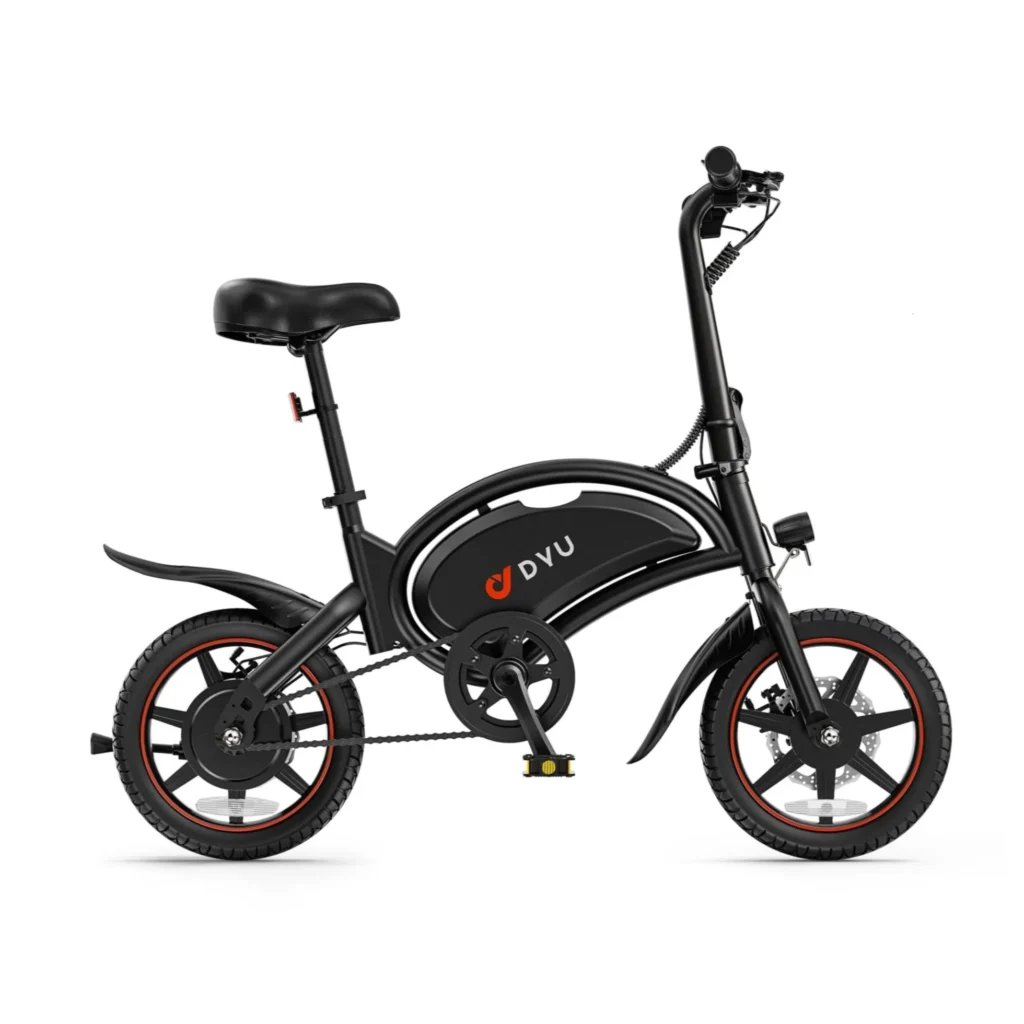
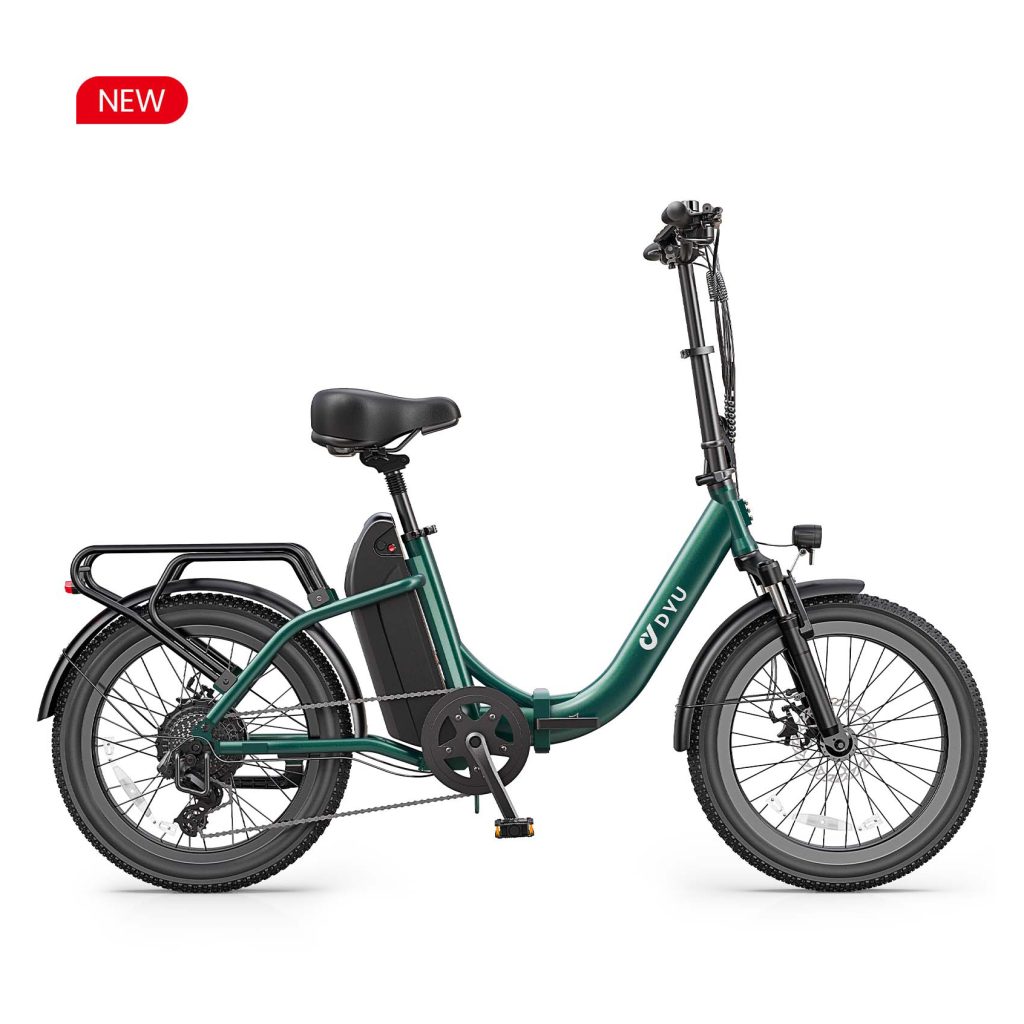
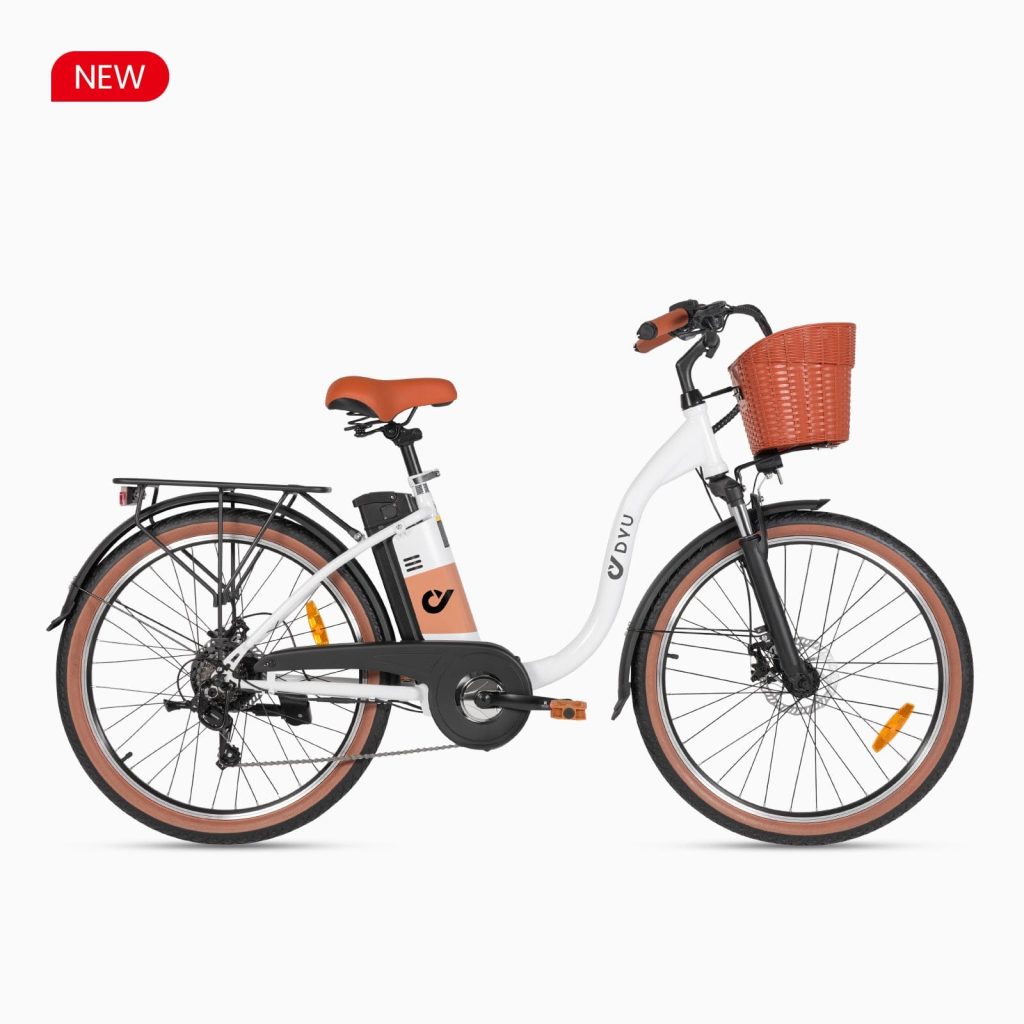
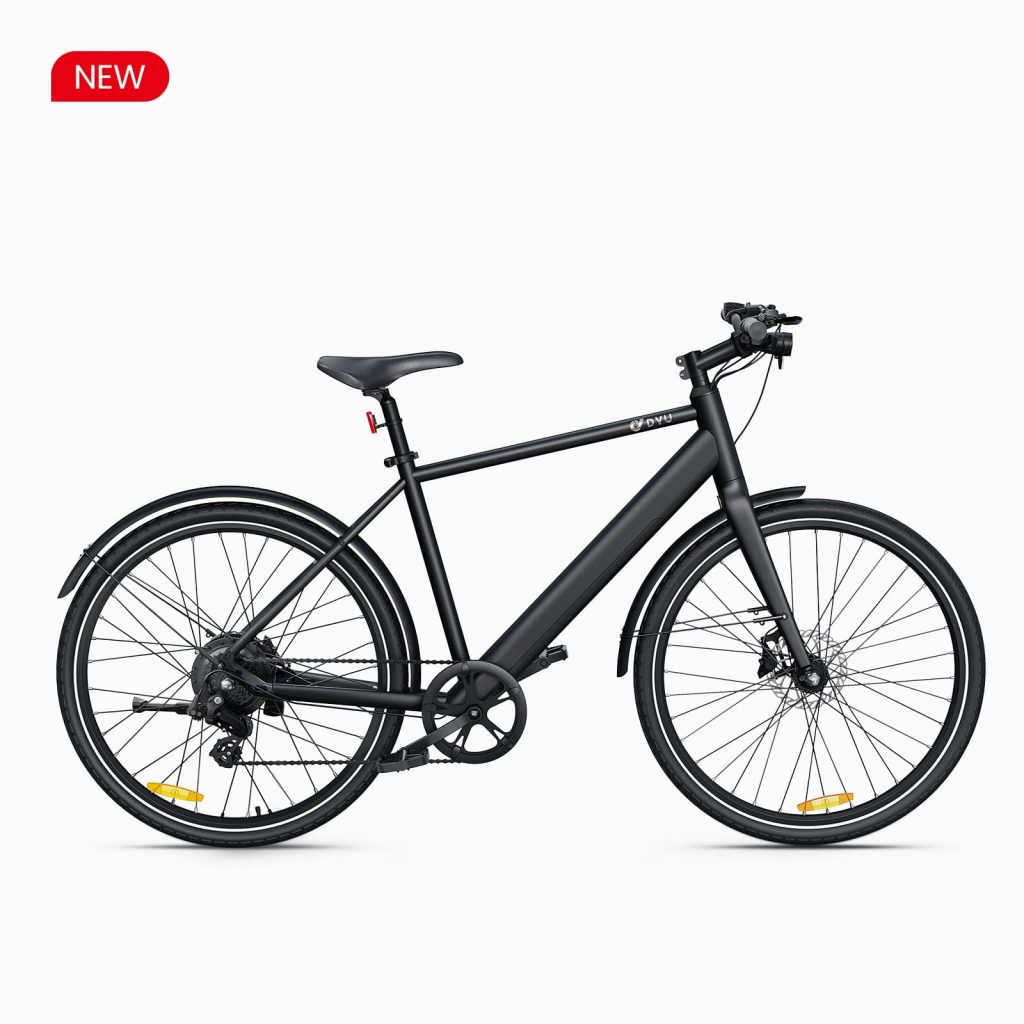

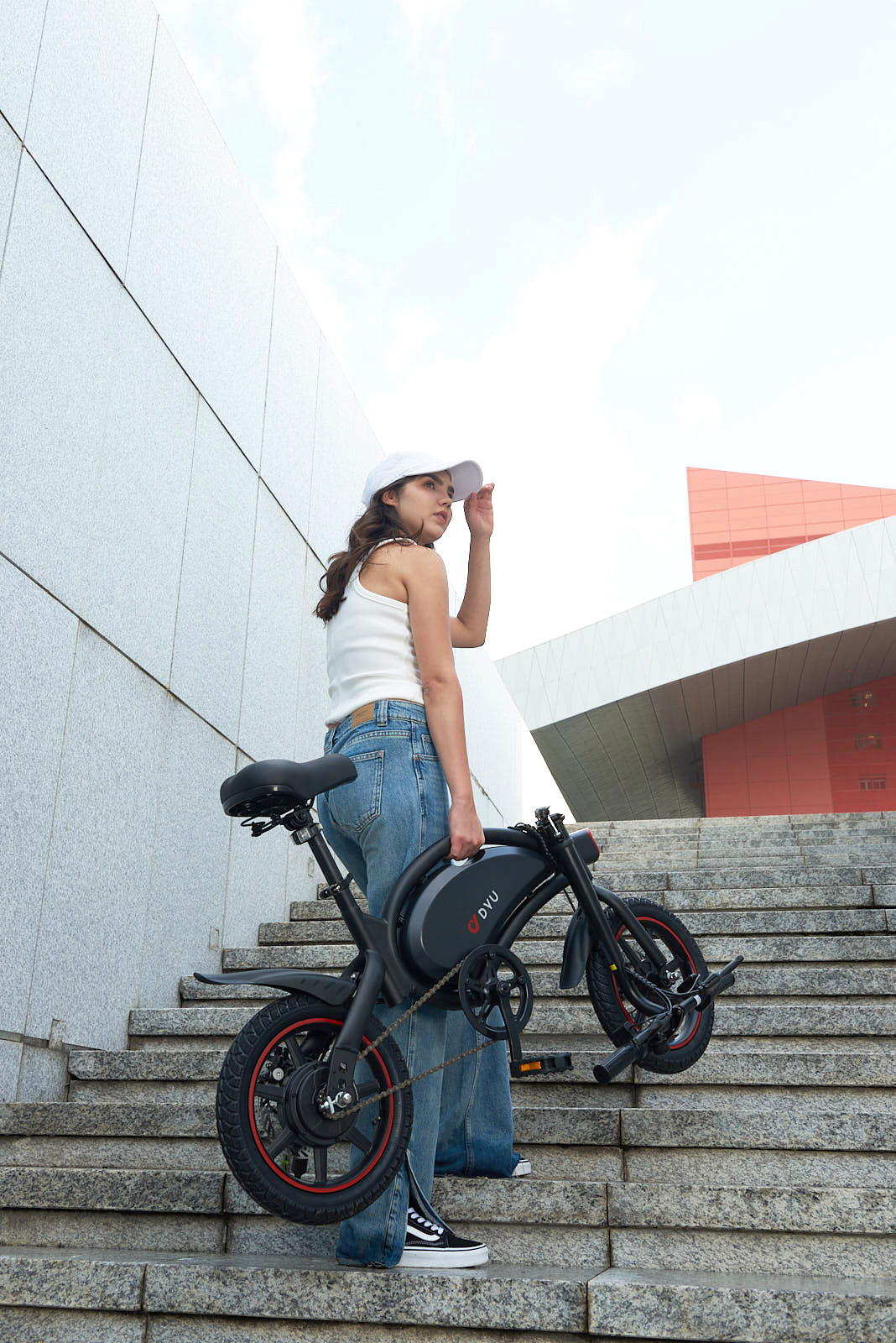
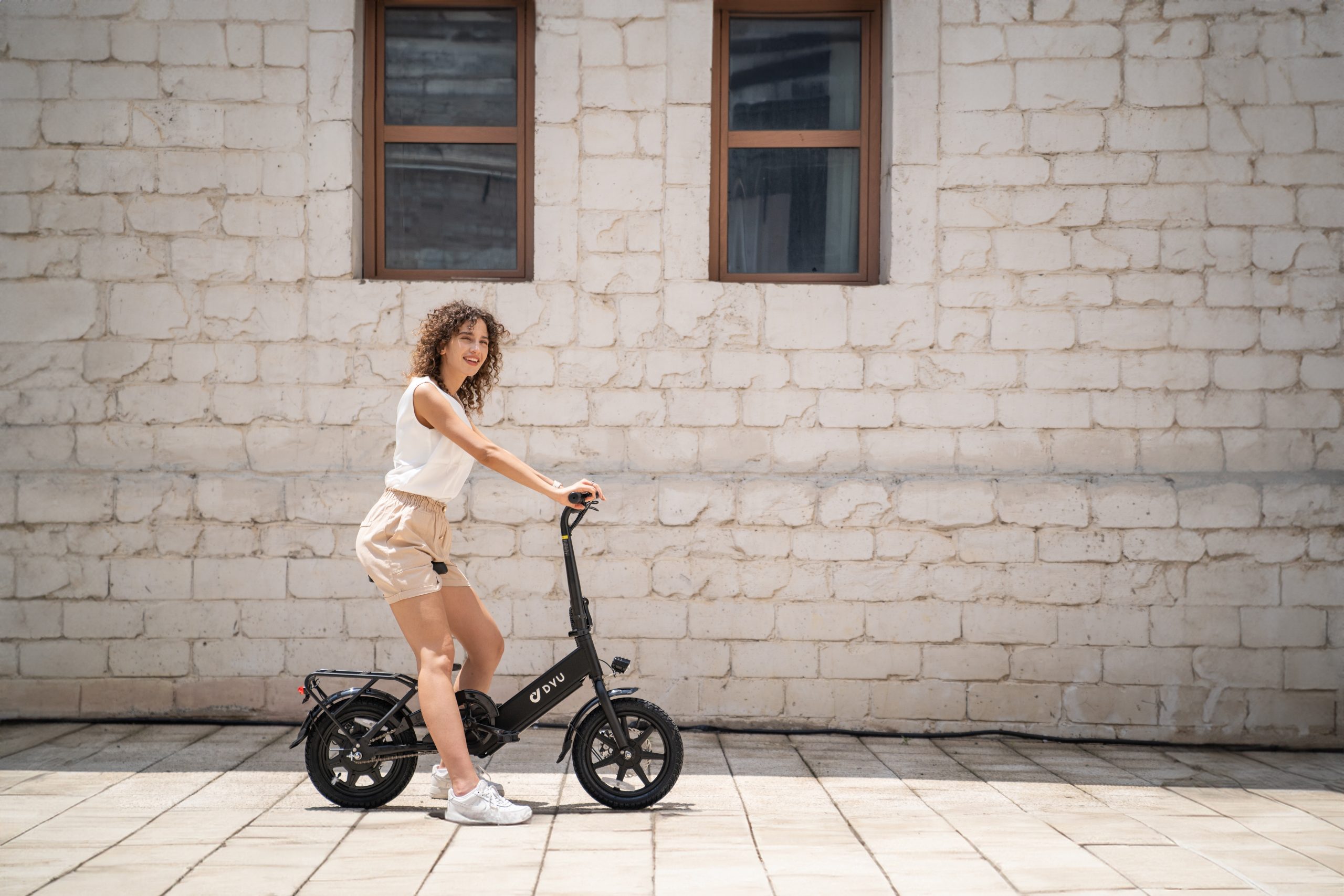
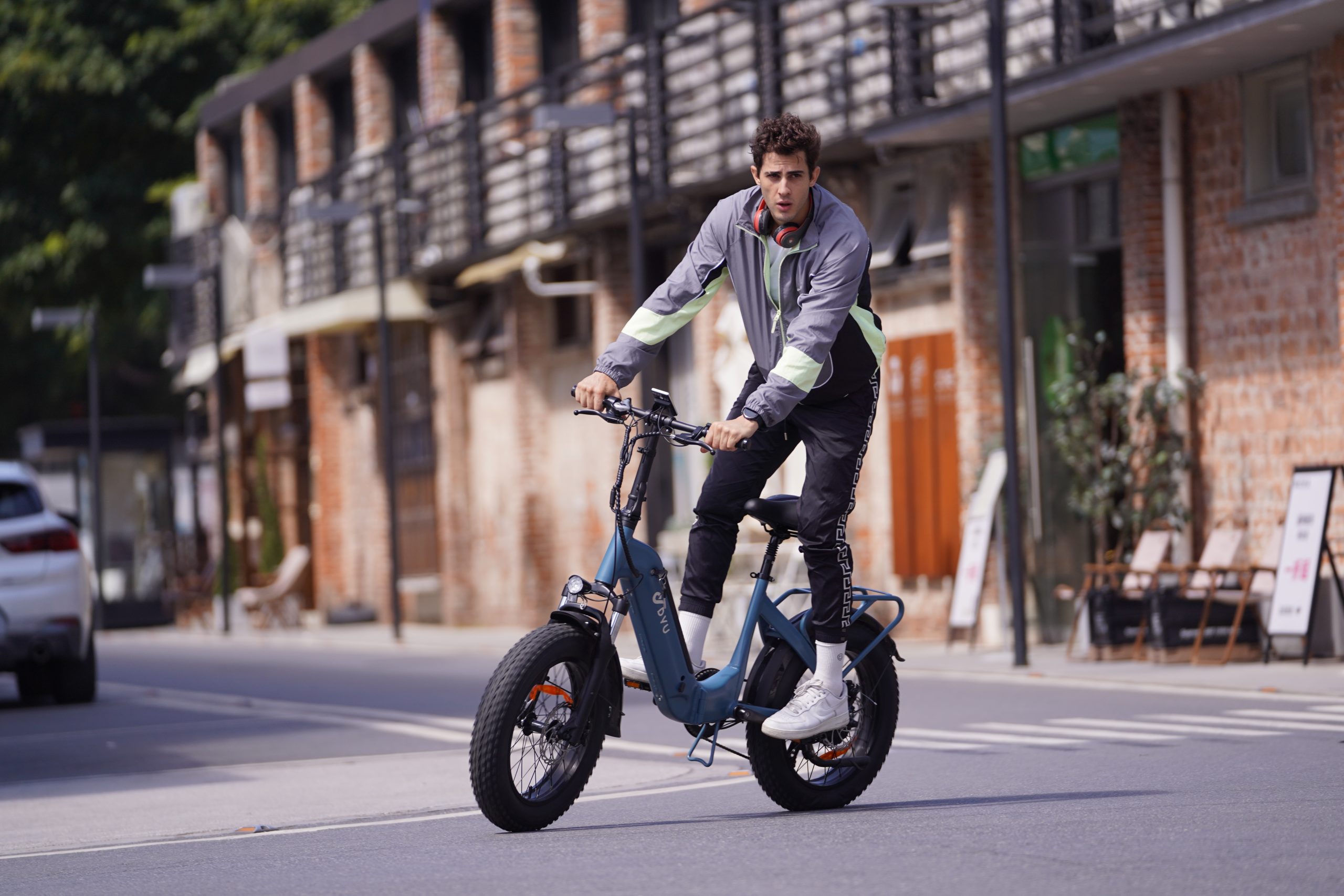

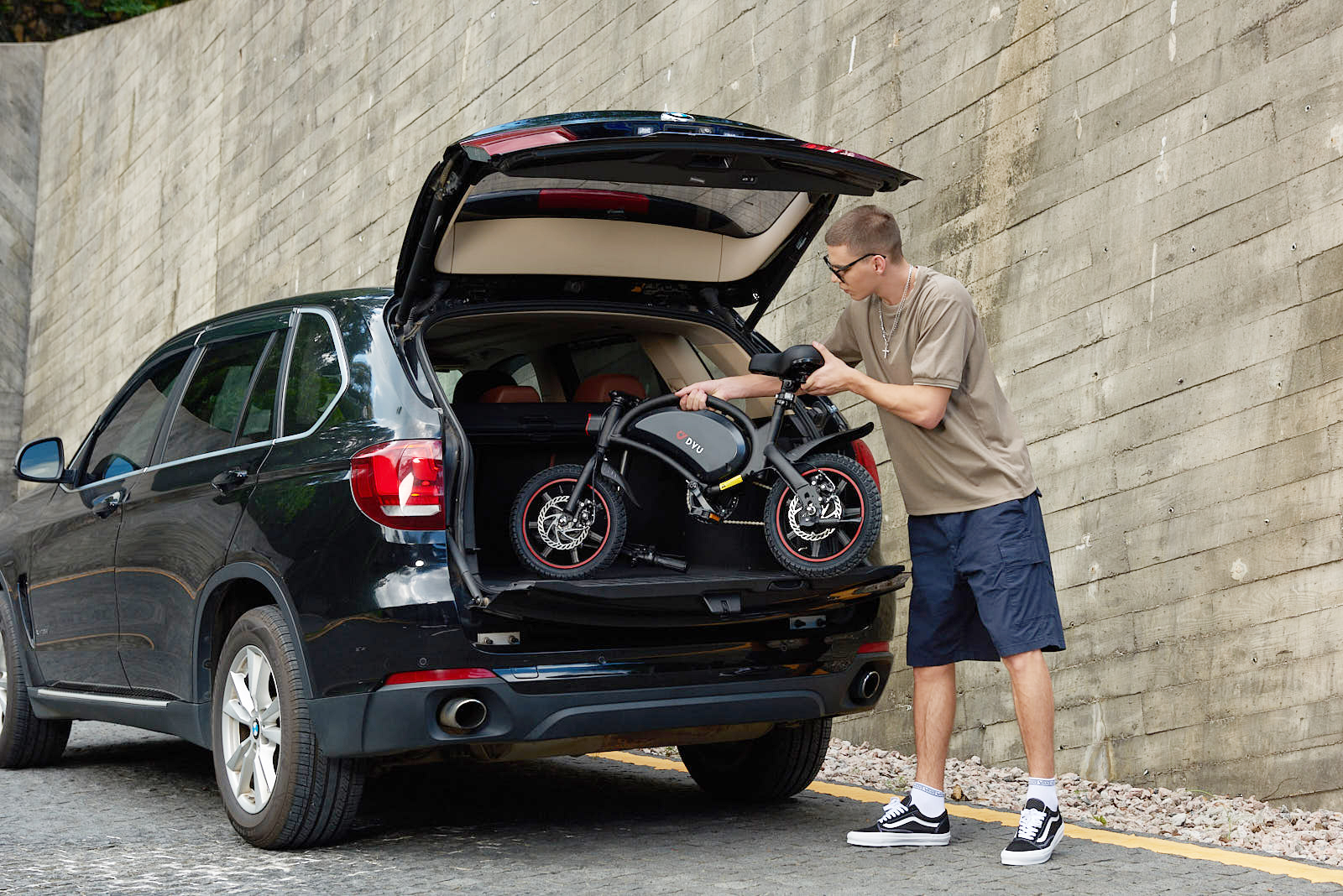
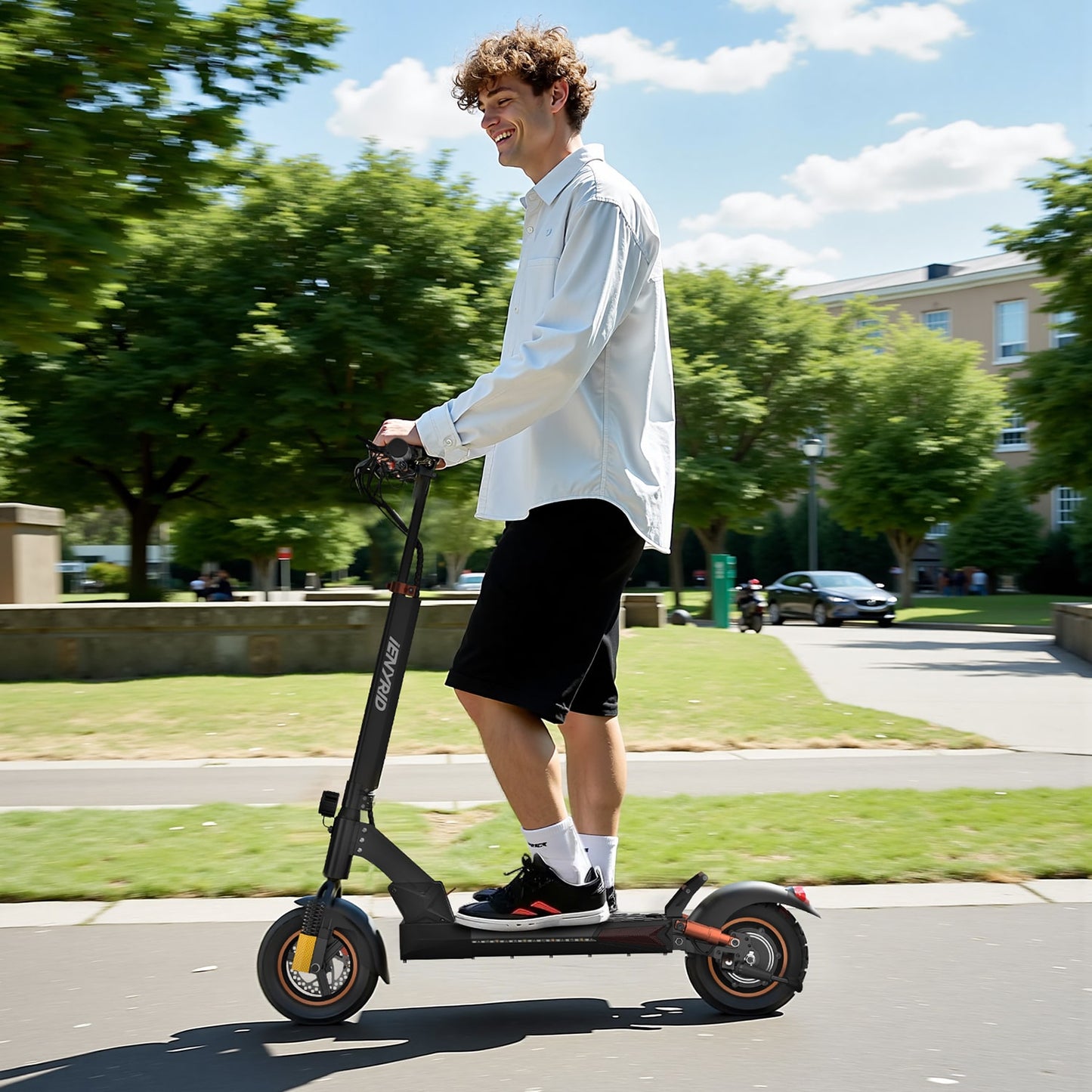
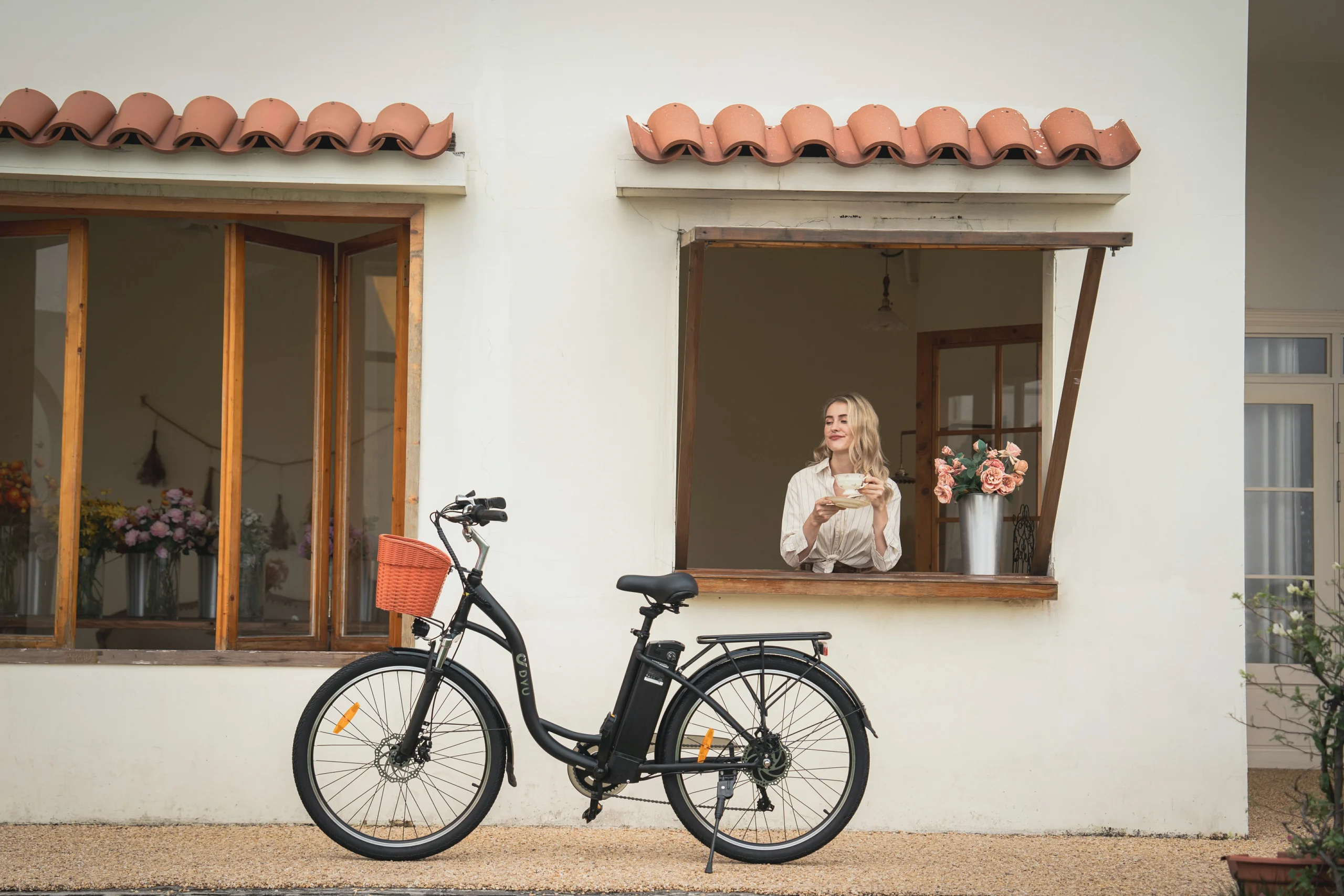
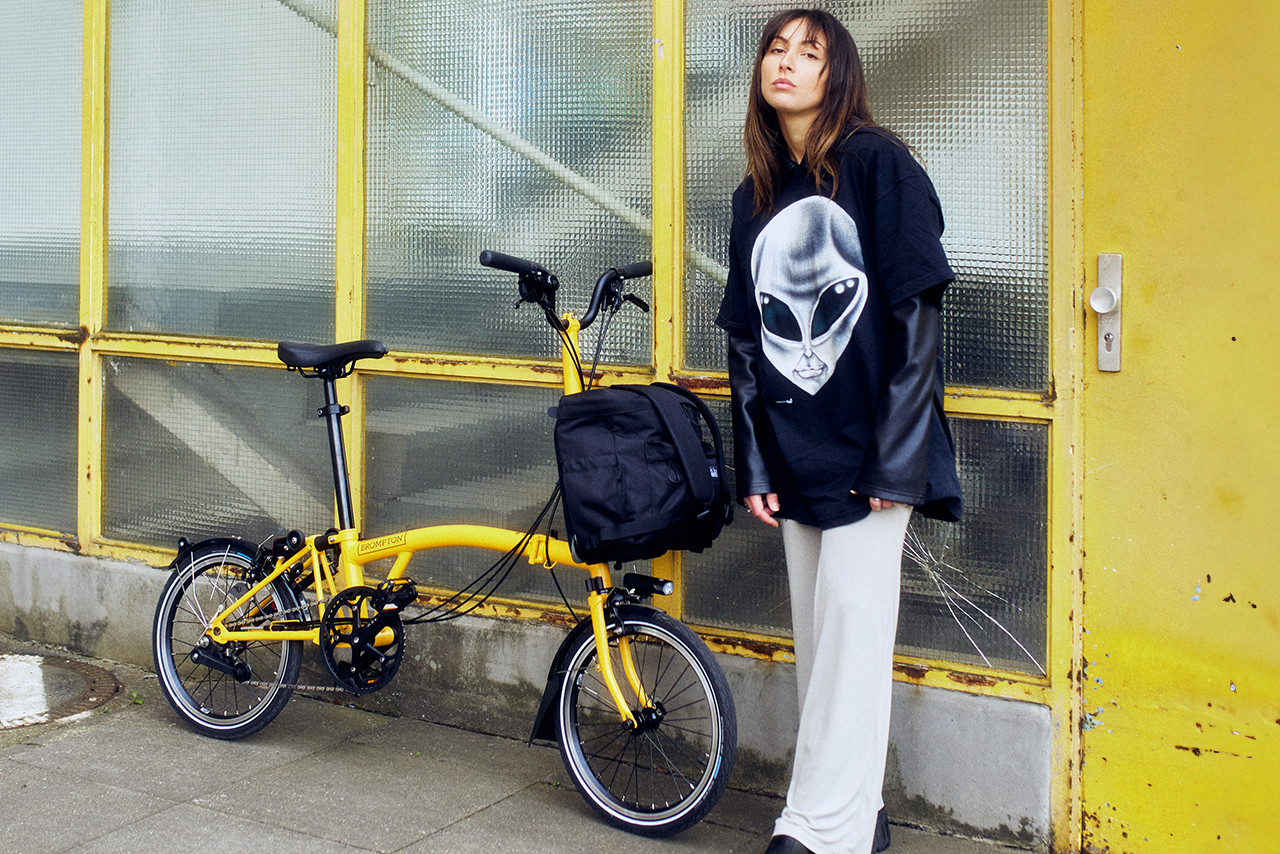
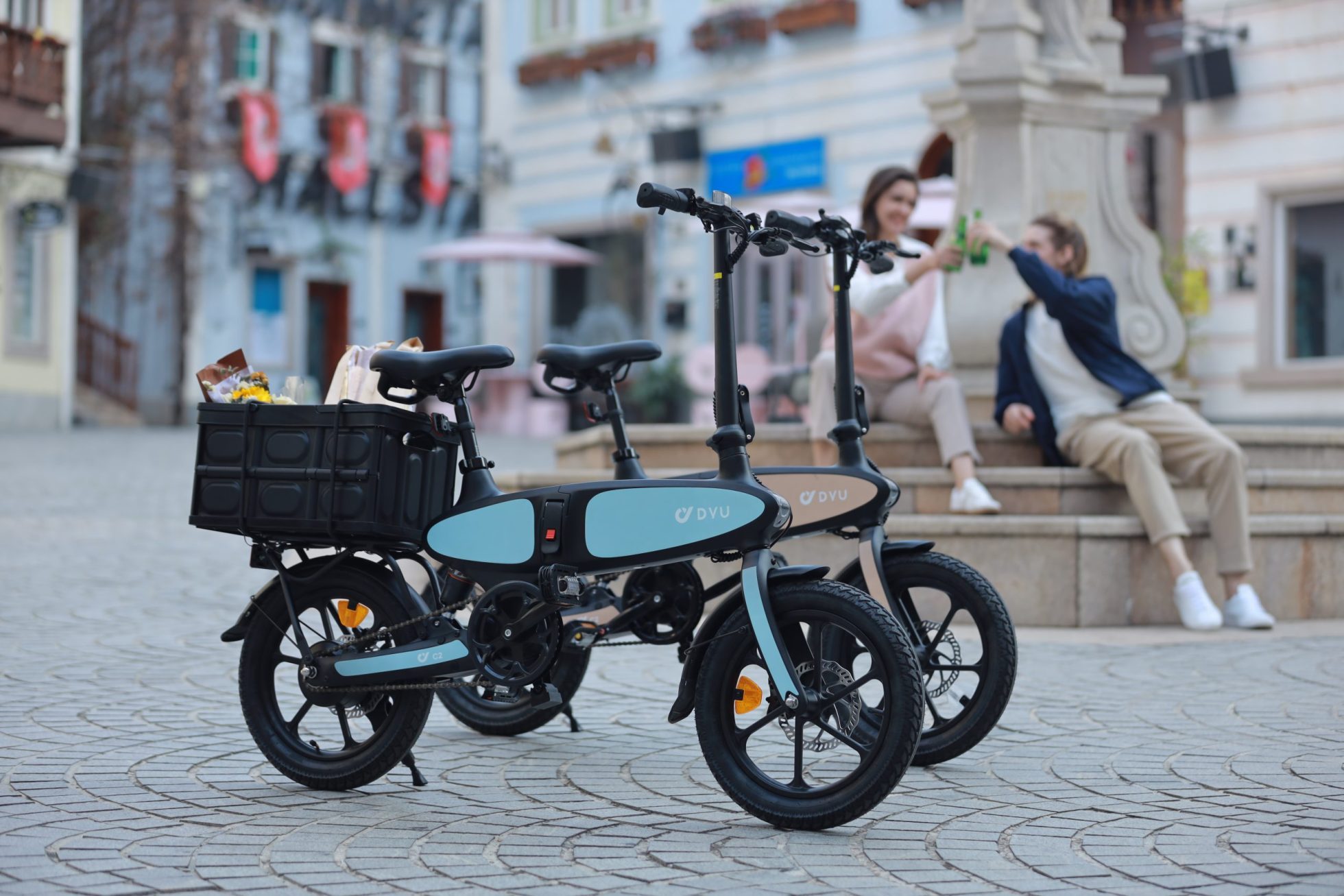
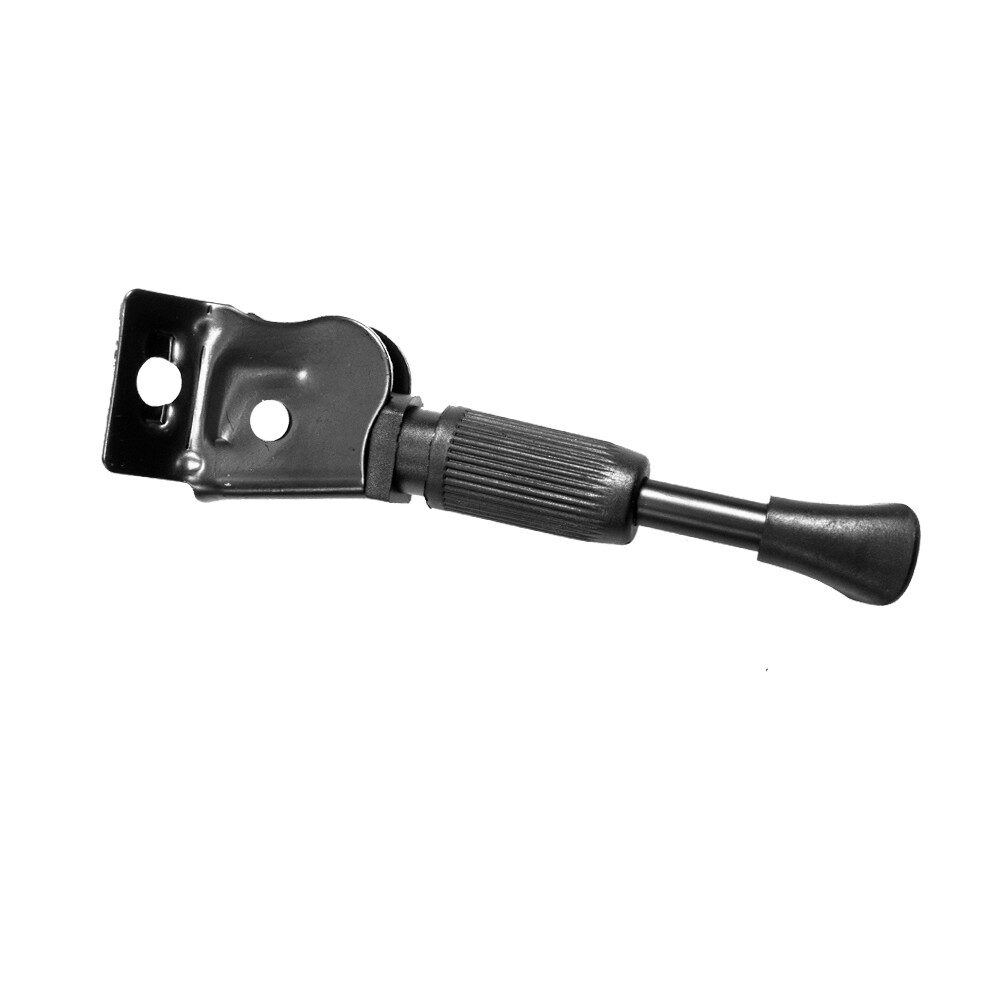
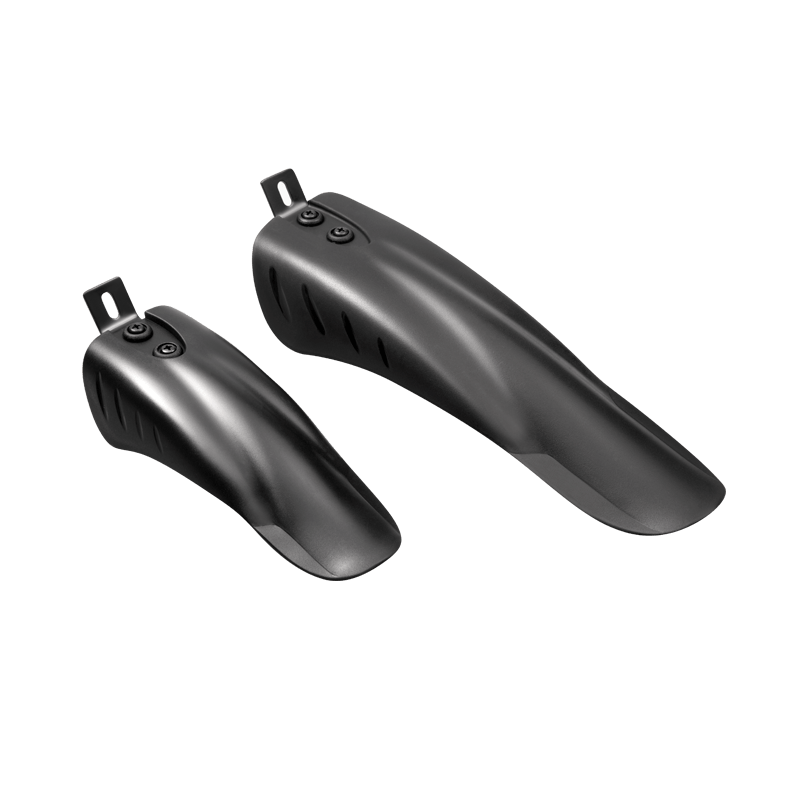
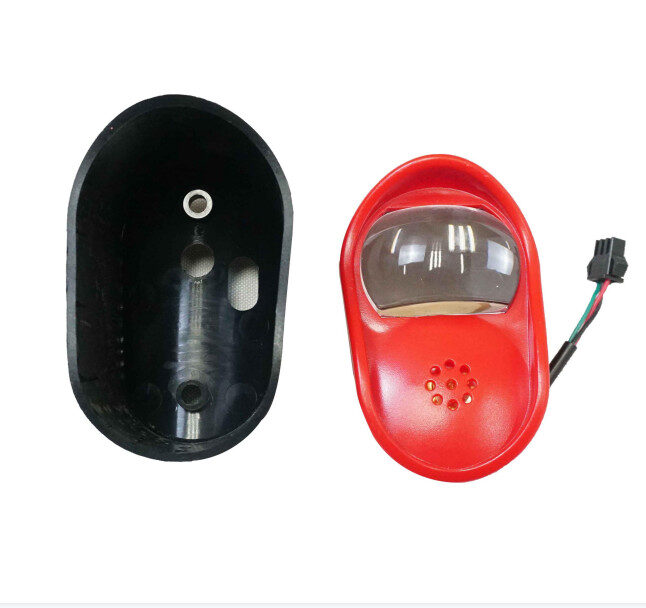
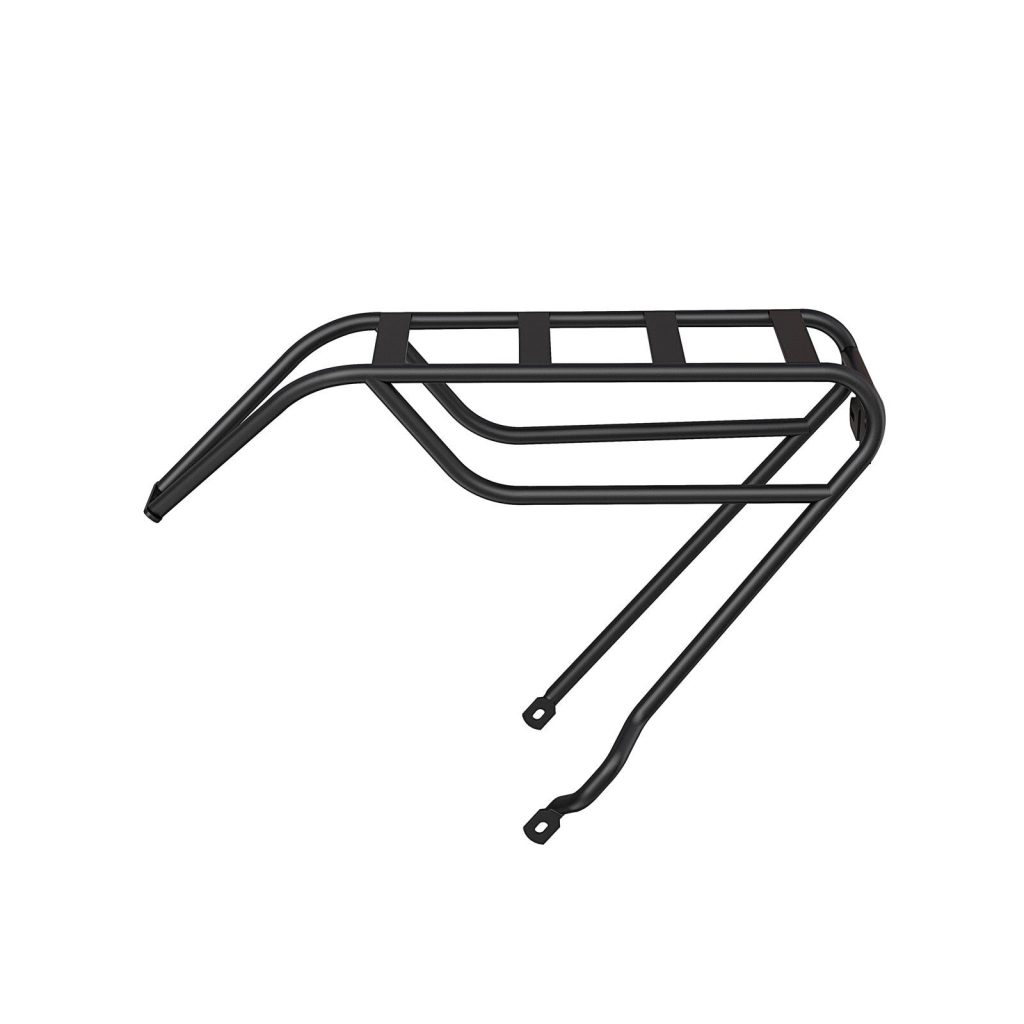
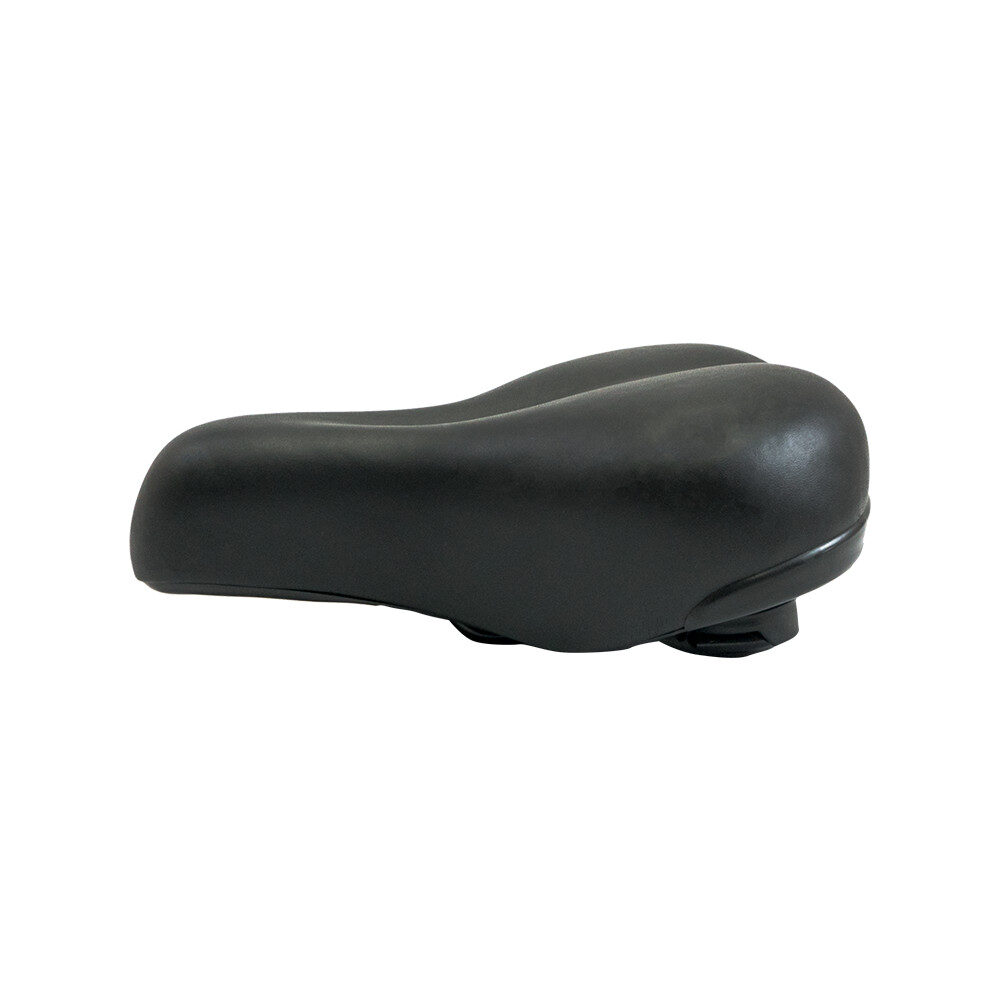
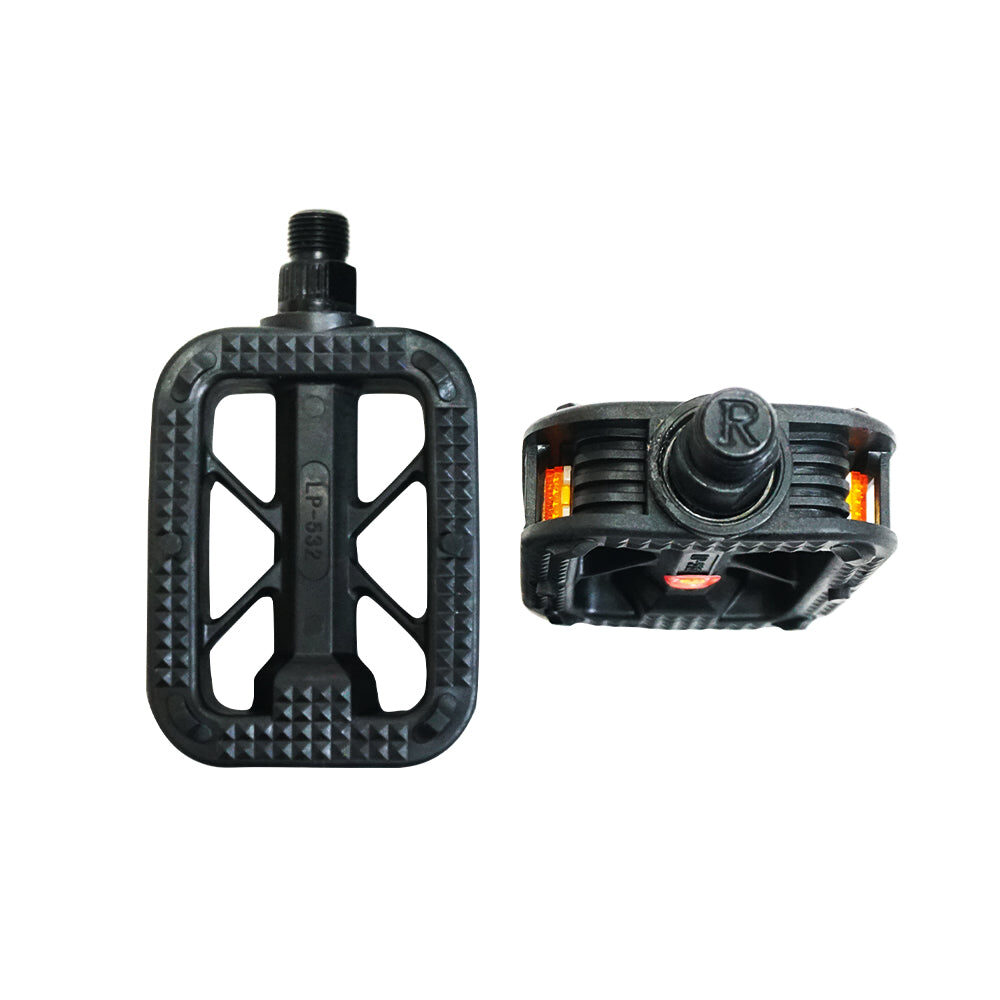
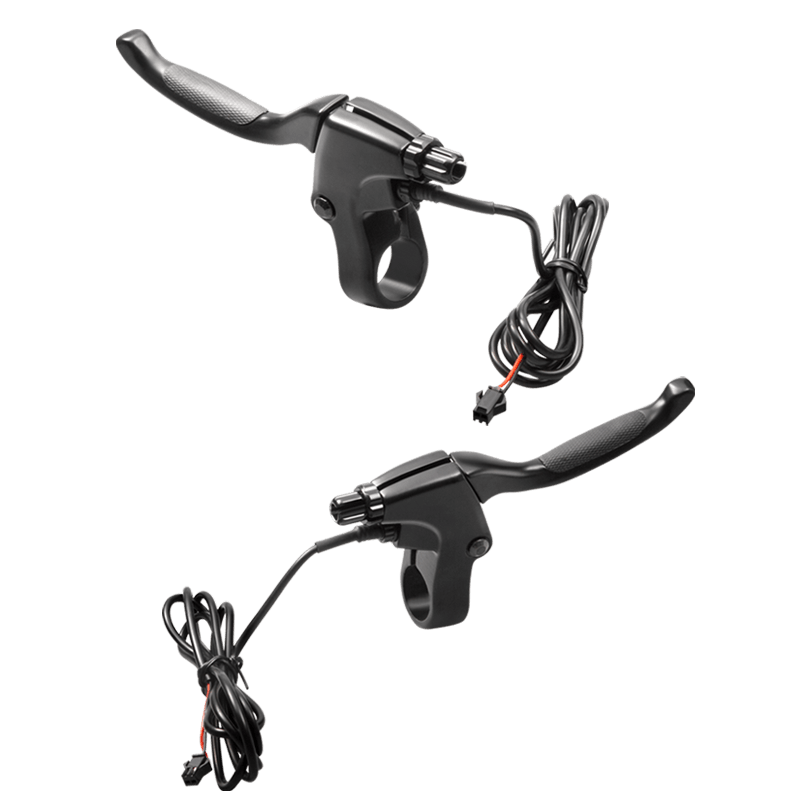
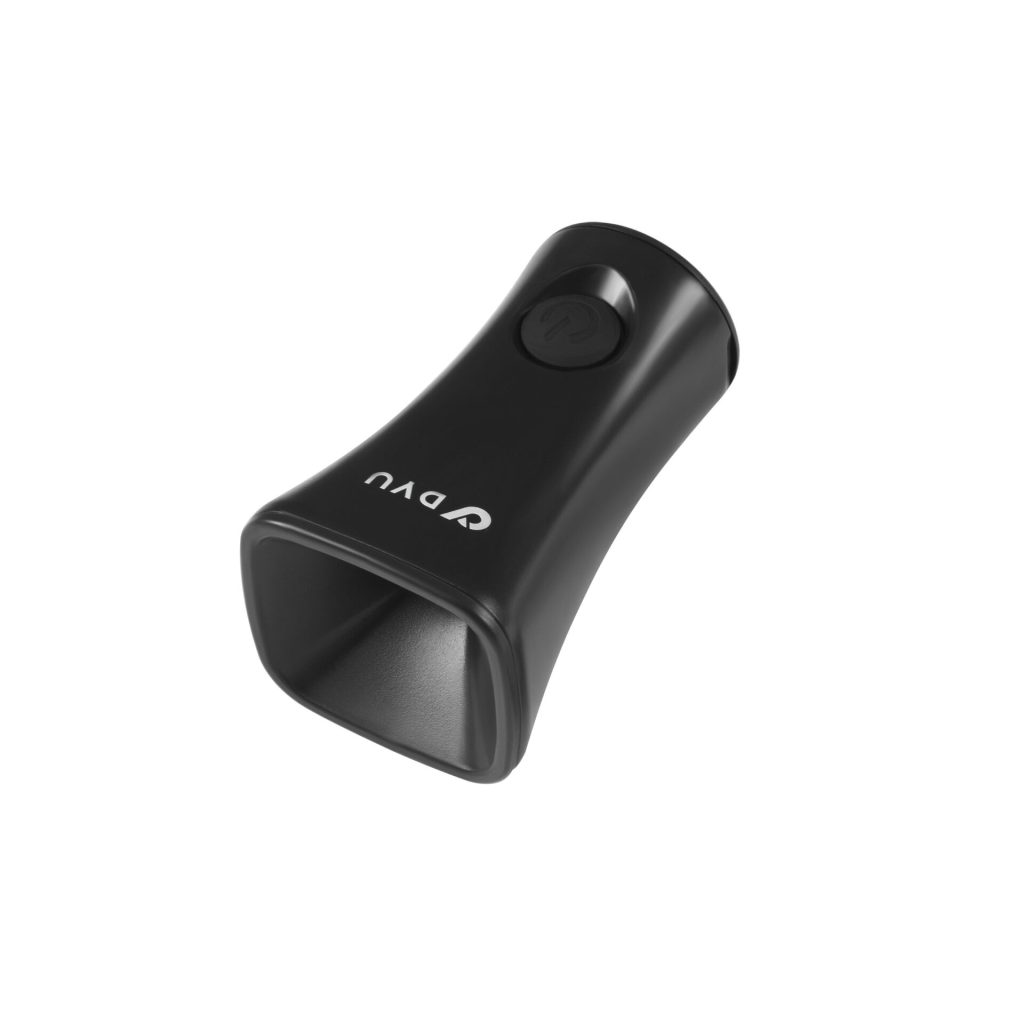

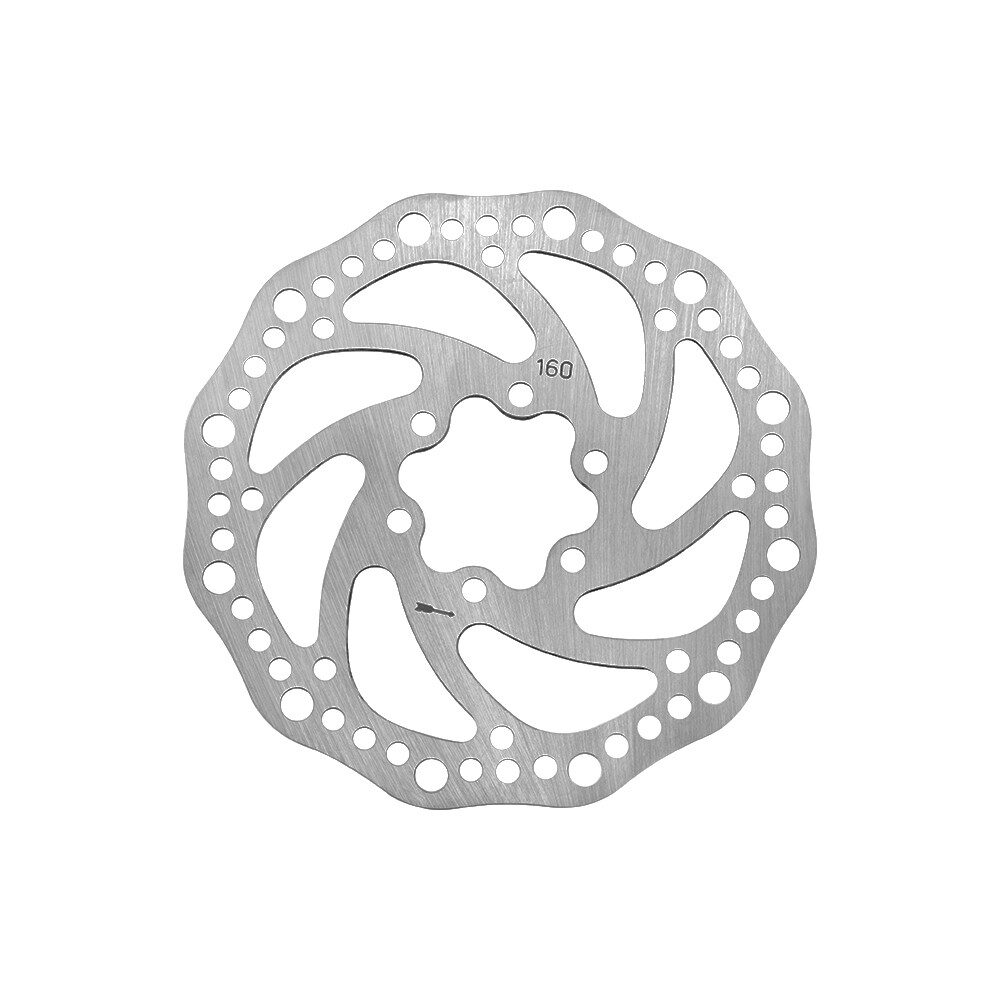
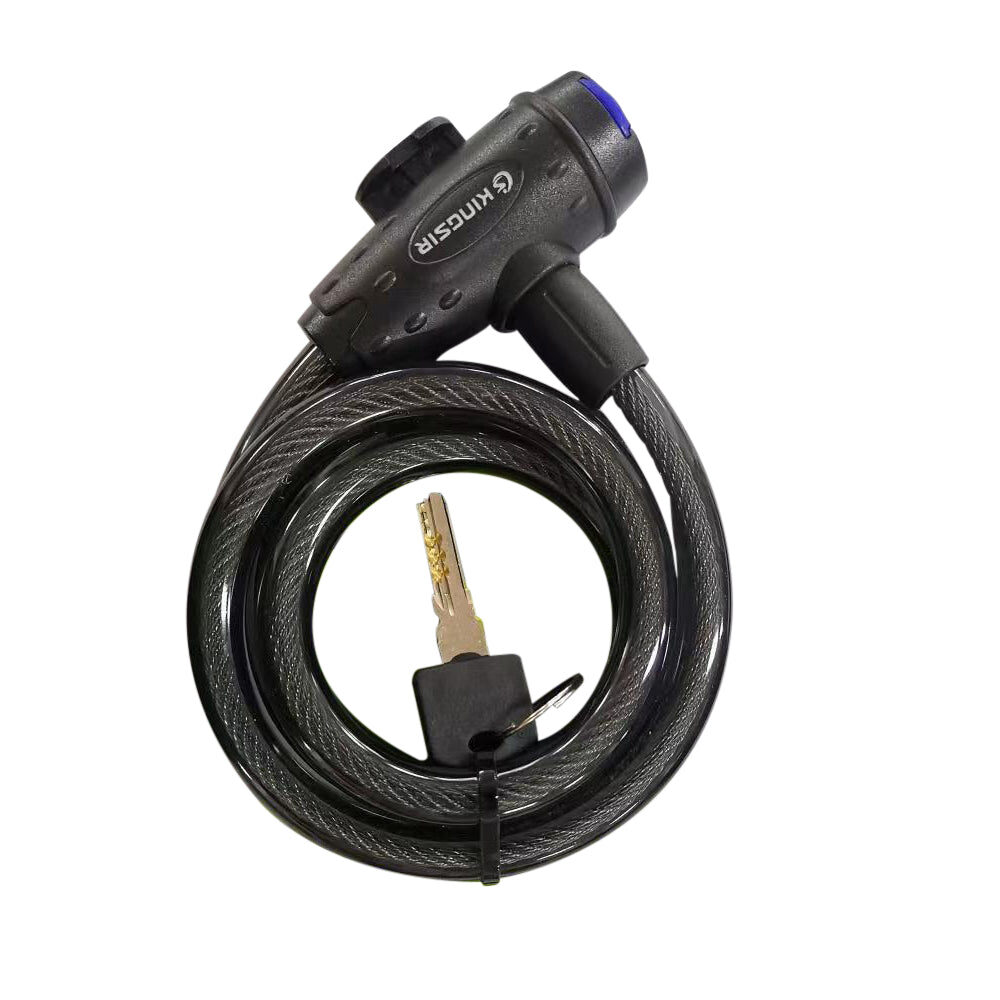

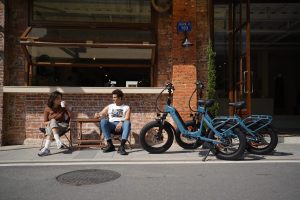
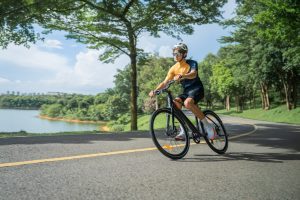
4 reacties
Raymond
Voelt de DYU T1 bergop echt sterker aan, of is het gewoon marketing?
Daniel Novak
Dat is een goede vraag! Tijdens echte ritten geeft het hogere koppel van de DYU T1 (ongeveer 50 Nm) een merkbare boost op heuvels, vooral vergeleken met de 35-40 Nm van de Fiido D11. Je vliegt geen steile beklimmingen op, maar je voelt wel een soepelere acceleratie en minder inspanning. Dit is geen marketingflauwekul - het is iets wat rijders na een paar woon-werkritten echt merken.
Patrick
Ik waardeerde het dat de auteur de voor- en nadelen van beide fietsen uiteenzette in plaats van alleen maar lofprijzingen.
Olijf
De vergelijking van de levensduur van de accu en de kracht van de motor is nuttig voor iemand zoals ik die gewoon een betrouwbare woon-werkfiets wil.